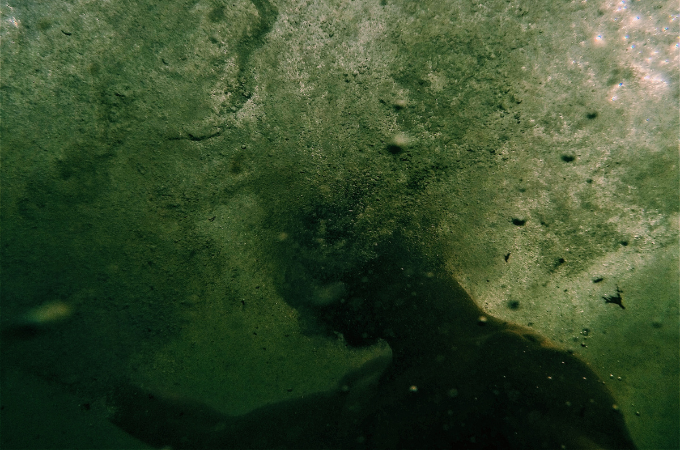
The mole appeared first. Monday
It sprouted on his forearm while he was having a bath. It was a greenish growth with delicate shoots and tiny threadlike veins snaking into intricate circles. It looked pretty harmless, but he knew what it was, and it scared him. Lifting his arm ever so cautiously, Yusuf peered down at the mole and put on the shower with his other arm. He knew better than to touch the mole. He knew he had been infected.
The next day. It grew a little larger.
The size of a pimple. Itchy. Making the skin surrounding it redden. Rummaging through his kitchen cabinets, he found painkillers and downed four pills. Angry thin lines were beginning to form on the patches he scratched. He paced the room, scratched his itchy arm some more, and opened the Venetian blinds of his apartment. For the first time in months, slivers of light illuminated his dingy apartment. He ran a finger over the windowsill, closed his eyes to think, then lashed them open and regarded the empty streets warily. No one was out there, but him. He was the only one hiding from a world of green, slimy, and thready things. Every other person he knew had been infected. Like him.
The radio roared to life suddenly. Jerking his head towards the rusty contraption, he paused to listen. The presenter sounded breathless and afraid. Like the rest of his kind.
“The current change in ecological order has resulted in the greatest pandemic in history. This time, it is not from a virus,” the presenter paused, drawing in as much breath as his lungs could carry, “but from a dangerous species of fungus. The spread is lethal.”
Lethal. The word to describe the thing that slithered over the countertop on a foggy morning in February and twirled around Yetunde’s arms, only to drag her across the counter, then floor and finally, through the window until shards of glass found home in all parts of her thin body.
They came in their thousands — the crawling organisms. During the day, they spread, infecting humans, and making zombies out of them. At nighttime, they slept.
Third day. Wednesday.
The growth had increased and spread. They dotted his upper arm and stomach, growing like a green rash on black skin. He regarded the uncomfortable bulges under his white shirt. They were forming a slimy pus at the tip and the pain was excruciatingly agonising. Soon the fungi would find home in his veins and rupture them with their weight. Yusuf reached for a pair of scissors, his vision blurry from the tears in his eyes. Lifting his white shirt tentatively, he lowered the blades to one of the moles. He shut his eyes, clenching his lids tighter and tighter as his fingers began to take action. Then he cut, shrieking when the sharp pain shot through his belly.
He spent the rest of the day tending to his wounds. Glancing out through the window. Looking at his reflection in the mirror. Skimming through old books and writing pages of love notes to Desola, hoping she survived it. And finally, cautiously padding along his grassy driveway.
Fourth day. Thursday.
The laughing fits started. The growth was no longer mossy, but hard like dried twigs. The ones he successfully cut had regenerated. Staring at the mirror, he shuddered at the mess he had become. However, he couldn’t show anguish because empty guffaws broke from his chest. They brought tears to his eyes, and memories too. There, he remembered the last time he’d seen Desola. He’d kissed her despite the growth on her upper lip. He had kissed her like his life depended on it.
Suddenly, the laughter died in his throat. Like a failed engine past the repair stage, he coughed. This was the next stage. The laughter, then the coughs. He reached for a glass of water and peered closely at the rim. It looked normal for a split second, and then it no longer did. Algae bloomed on the rim, and spread, reaching out to him with slippery ease. He screamed, tearing at his shirt. The glass slipped from his hand and shattered all over. Yellow creatures — tiny ant-sized organisms — crawled towards him at high speed. Again, they would find a home in his body and suck his blood till he was spent.
But it was all in his imagination. Here he was, staring out into the moonless night. The pharmacy, his last hope, was just a street across — a weary bungalow with hipped roof, shining dully in the cold, black night.
The pharmacy, like the rest of the city, was deserted, Yusuf noted, bypassing the fence. The lawn was overgrown, and the door was broken in two, held loosely by its hinges.
Padding across the terrace stained with bleach and clotted blood, he let himself in through the broken door. Then paused. There, right in front of him was a jagged mirror. His reflection scared him. The growth had reached his neck and was crawling over his chin. He tore his gaze off the mirror, adjusting to the dim light. A bulb dangled over his head, flickering ominously. Broken glass crunched under his feet. Dust and the lingering odour of fungicide clogged his nose. He looked through shelves. Upturned tables. Rummaged the drug store. Finally, he grabbed more painkillers and left.
Outside, the sky was illuminated by the sickly yellow light from the lone streetlight. It was a stark reminder that like the rest of the world, he would die. He traversed the crosswalk, thrusting the painkillers into his pocket, and halted when the headlight of a truck came on. Chill went down his spine, and he made a quick U-turn, walking into an alley.
Shrivelled leaves rustled beneath his booted feet. But he walked faster, his legs heavy with fungi and pain. A dog barked, then another joined it. And another. And another. Till their barks formed a perfect cacophony that would haunt him forever. The tingly sensation was coming back. The laughing fits. The frustration brimming just beneath the—
“Stop!”
Trembling, he halted completely, his fists balling at his sides. He had been caught. He would die. With his heart pounding against his tired chest, he held onto the drugs and Desola’s last picture. Tears blurred his eyes. But they made the growth on his chin itch more.
“Turn around.”
He did, regretting the mess he had become. The flashlight came closer, holding a dog held on a leash. The dog sniffed him and barked, confirming his status. Mr Flashlight turned towards the rest and hollered.
“He has it!”
In a split second, a plastic bag was thrown over his body and air snuffed out of him so quickly.
Unfamiliar territory. Smell of anaesthesia. Bright lights. Dozens of people walking about in white and blue scrubs. And a man peering closely at his face through a mask.
“Almost,” the man began, straightening his stance. Tucking a pen in his breast pocket primly, he continued and pointed a sharp flashlight in his eyes. “At advanced stage. Thick fungus, pus. Everything.”
Yusuf’s pupils adjusted to the glare. His eyes were yellow-rimmed, and pus poured from his tear ducts. The laughter was coming, but he couldn’t move. He had been held down like the others, in a bed made to stand upright.
The thin man droned on about the symptoms he knew like the lines of his palms. About death. About the rupture of body cells when the weight of the fungus became too heavy. And then… about the newest victims who just died.
For the first time since his eyes opened, Yusuf saw the bloody mess in front of him. And in the middle, where a devilish mass of bloody innards and ravenous fungi lay, was the bangle he had given her on her 31st birthday.
Down there was Desola. Dead.


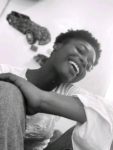
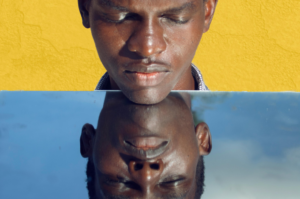
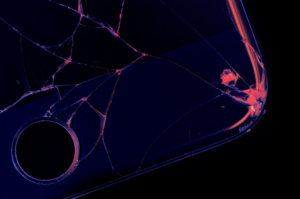
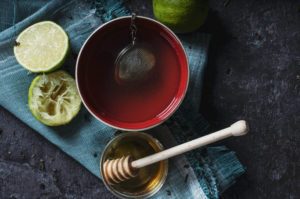

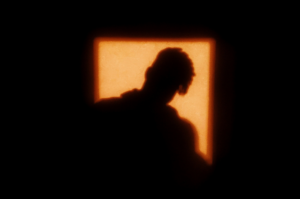
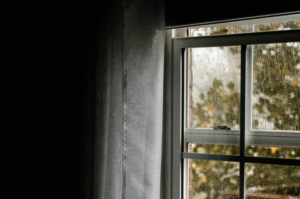

levoN August 09, 2023 11:36
Thrilling